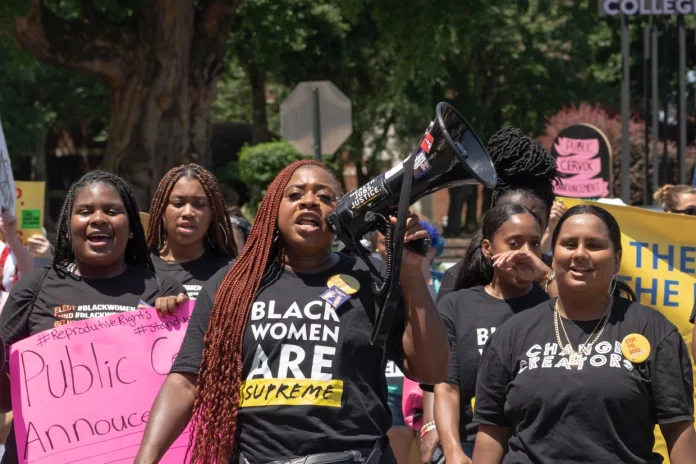A recent study revealed that 57% of Black women of reproductive age reside in states where abortion bans or imminent restrictions are in place.
A recent report from reproductive rights organizations, the National Partnership for Women & Families (NPWF) and In Our Own Voice, highlights the impact of abortion restrictions on Black women in the United States. According to the report, nearly 7 million out of the country’s 11.8 million Black women of reproductive age reside in states with existing abortion restrictions or plans to implement them.
These restrictions have significantly increased since the Supreme Court overturned Roe v. Wade. In states with bans or threats to abortion access, 57% of Black women aged 15 to 49 are affected, raising concerns about their physical and economic well-being. Additionally, the report notes that 2.7 million of these women are economically insecure, and 1.4 million work in service jobs that often lack essential resources like paid sick days and flexible scheduling.
The report emphasizes that abortion bans are not the only concern for Black women in these states; issues such as economic opportunity, racial justice, and healthcare accessibility are also closely intertwined. Southern states, which have a majority of abortion restrictions, are home to a significant portion of the Black population, exacerbating the impact on Black women.
Moreover, the report highlights the disproportionate burden placed on Black women regarding reproductive health decisions. Many have faced difficult choices and uncertainties about their health and future due to limited access to abortion care.
As of May, 14 states have banned abortion, and 11 have restricted access to the procedure. Recent rulings, such as Arizona’s near-total abortion ban, further underscore the urgency of addressing these issues.
Reproductive justice advocates emphasize the need to prioritize the experiences of Black women and other marginalized communities in discussions about abortion rights. They hope that this report will prompt broader conversations among policymakers and stakeholders to address the consequences of abortion restrictions and work towards equitable solutions.


